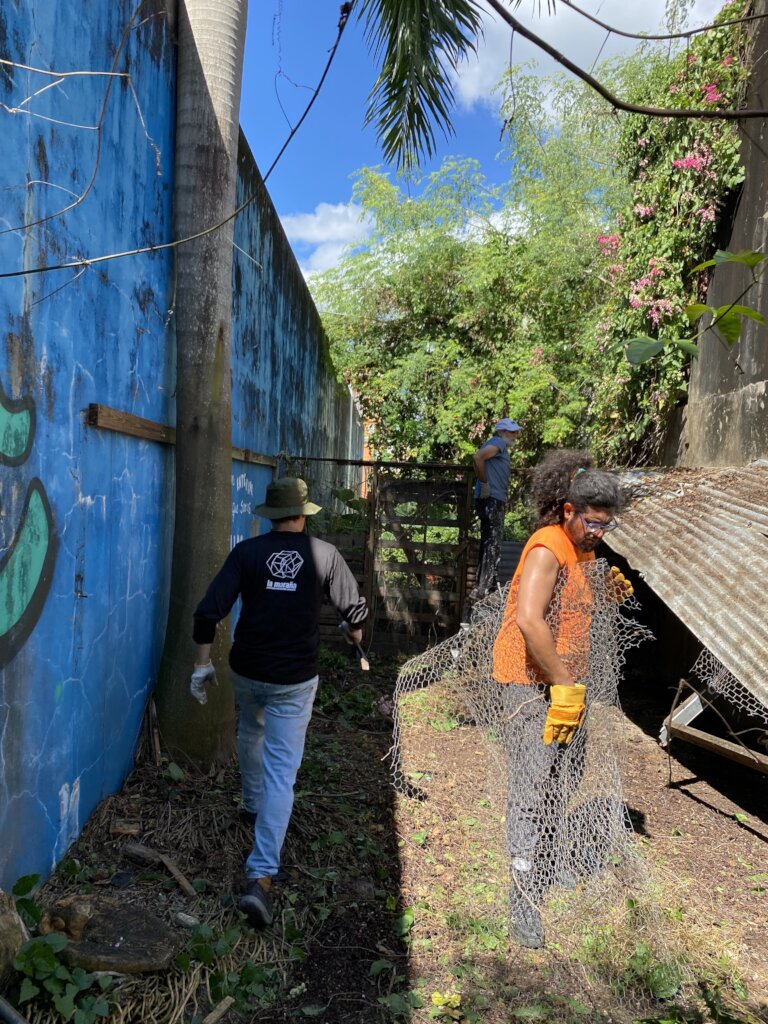By Cynthia Burgos Lopez | Executive Director
In La Maraña, a recurring topic of conversation is being able to clearly define what it means to stay in our communities. What does permanence look like? What are the basics to remain in dignity in front of climate change on an island context and systematic displacement? Through the recovery project after Hurricane Fiona we learned about the food vulnerability to which we are subjected by climatic and political risks. The Merchant Marine Act of 1920 is a United States federal statute that provides for the promotion and maintenance of the American merchant marine. Among other purposes, the law regulates maritime commerce in the U.S. waters and between U.S. ports. This means that everything that is going to enter in PR has to enter the ships with the American flag, being one of the most expensive merchant marines in the world. On top of this, PR independently imports 85% of the food we consume. This, added to our island status, puts us before a crass scenario of food vulnerability. This recovery process has opened the doors and the understanding for us to continue actively supporting food production projects on the island. During the month of February 2023 we concluded the second phase of the Food Sovereignty Fund where we organized 11 brigades in support of 11 food production projects around the island. Entering the third and final phase- We aim at an agricultural future that is collectively build from the intersection of the design and construction of best practices for managing resources (air, soil, water) on farms and regenerative economic development practices. For this reason we have been developing a register and rubric in order to begin to compare with the different projects of food production and to define in which project of just recovery of the agricultural landscape we are going to focus. We also developed a short film that protrays what food sovereignty means in our colonial context.
Parallel to this project we are working with the Participatory Design Laboratory. On the first round we find ourselves working with Usubal in Canóvanas were we are working together on a community census, Urbe Apie, Caguas- we are working with making a community plaza and orchard accesible and inclusive and with the fisherman of Crash Boat reconstructing their fishing Villa. Thank to the support and donations we will be able to work with two additional communities- currently we have an open call for this selection process and really excited to know who will be our next collaborators.
Until next time,
Links:
Project reports on GlobalGiving are posted directly to globalgiving.org by Project Leaders as they are completed, generally every 3-4 months. To protect the integrity of these documents, GlobalGiving does not alter them; therefore you may find some language or formatting issues.
If you donate to this project or have donated to this project, you can receive an email when this project posts a report. You can also subscribe for reports without donating.
